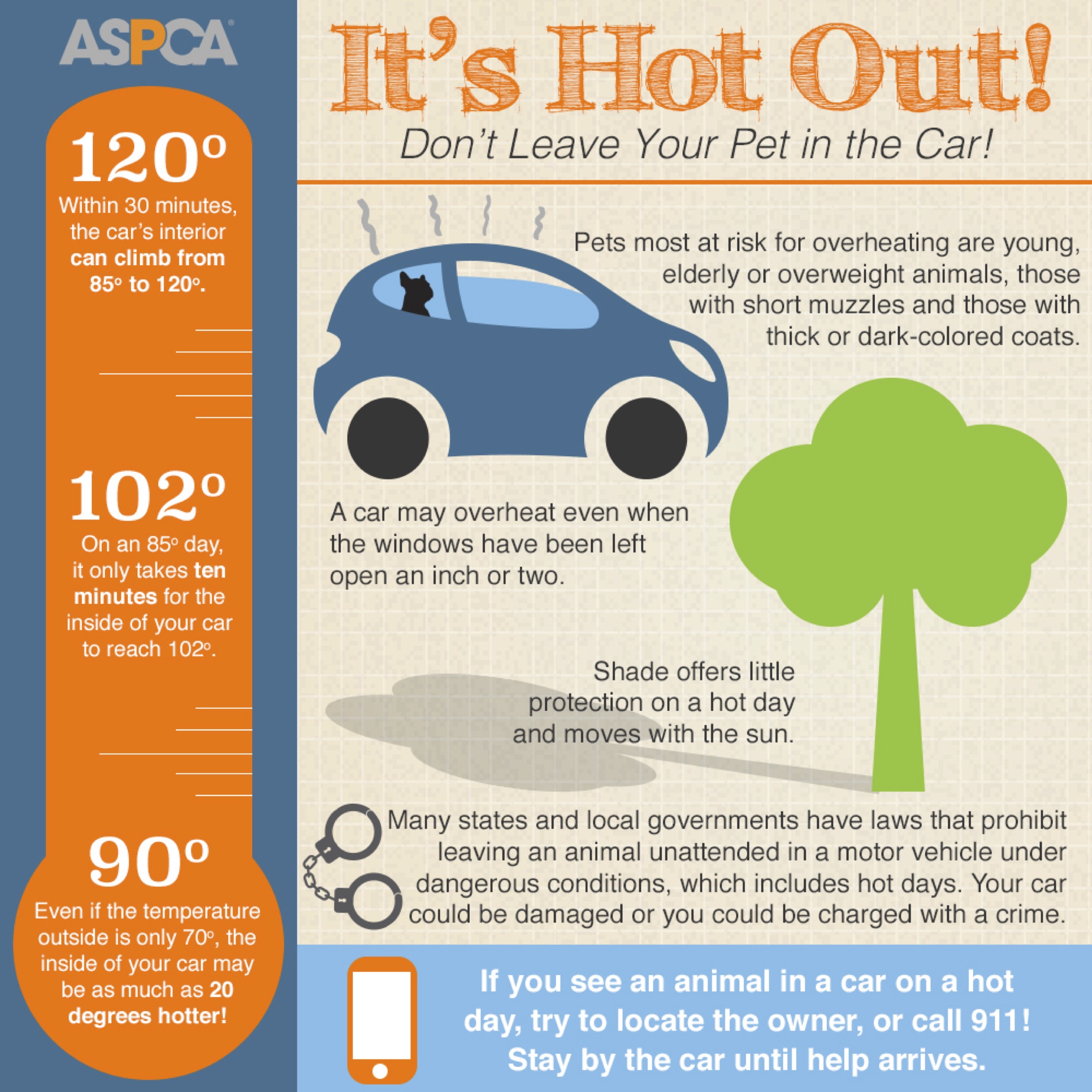The summer season is here, and while we humans can make necessary adjustments to stay cool, our pets are depending on us to think ahead and keep them safe. Fun activities like taking your furry co-pilot along while running errands can do more harm than good.
Did you know? When it’s 80 degrees outside, your car will reach 114 degrees in less than 30 minutes. Even scarier, dogs and cats cannot cool themselves down as easily as humans. Even with the windows cracked, the A/C running and a bowl of water in the car, the danger is just too great.
Here are helpful reminders and tips and shareable infographictips from the ASPCA on how to keep your pets cool and safe this summer:
- Visit the vet for a spring or early-summer checkup and get tested for heartworm.
- Pets can get dehydrated quickly, so give them plenty of fresh, clean water when it’s hot or humid outdoors. Make sure your pets have a shady place to get out of the sun, be careful not to over-exercise them, and keep them indoors when it’s extremely hot.
- Know the symptoms of overheating in pets, which include excessive panting or difficulty breathing, increased heart and respiratory rate, drooling, mild weakness, stupor or even collapse. Symptoms can also include seizures, bloody diarrhea and vomit along with an elevated body temperature of over 104 degrees.
- Animals with flat faces, like Pugs and Persian cats, are more susceptible to heat stroke since they cannot pant as effectively. These pets, along with the elderly, the overweight, and those with heart or lung diseases, should be kept cool in air-conditioned rooms as much as possible.
- Never leave your animals alone in a parked vehicle. Not only can it lead to fatal heat stroke, it is illegal in several states!
- Do not leave pets unsupervised around a pool—not all dogs are good swimmers. Introduce your pets to water gradually and make sure they wear flotation devices when on boats. Rinse your dog off after swimming to remove chlorine or salt from his fur, and try to keep your dog from drinking pool water, which contains chlorine and other chemicals.
- Open unscreened windows pose a real danger to pets, who often fall out of them. Keep all unscreened windows or doors in your home closed, and make sure adjustable screens are tightly secured.
- Change your walk schedule to accommodate those paws! The asphalt, sand, and concrete is quick to heat up during the summer months leading to burnt paw pads. Be aware of hot surfaces, walk your dog during cooler times of the day, and use the “hand test” on surfaces if you are unsure. The hand test: Place your hand flat on the pavement or walking surface for 10 seconds. If it’s too hot for your hand, it’s too hot for paws!
- Being so close to the ground, your pooch’s body can heat up quickly, and sensitive paw pads can burn. Keep walks during these times to a minimum.
- Commonly used rodenticides and lawn and garden insecticides can be harmful to cats and dogs if ingested, so keep them out of reach. Keep citronella candles, tiki torch products and insect coils of out pets’ reach as well.
If you see a dog, cat or other pet in danger call 911 immediately. Download and share this helpful graphic to spread the word and keep pets safe this summer.



